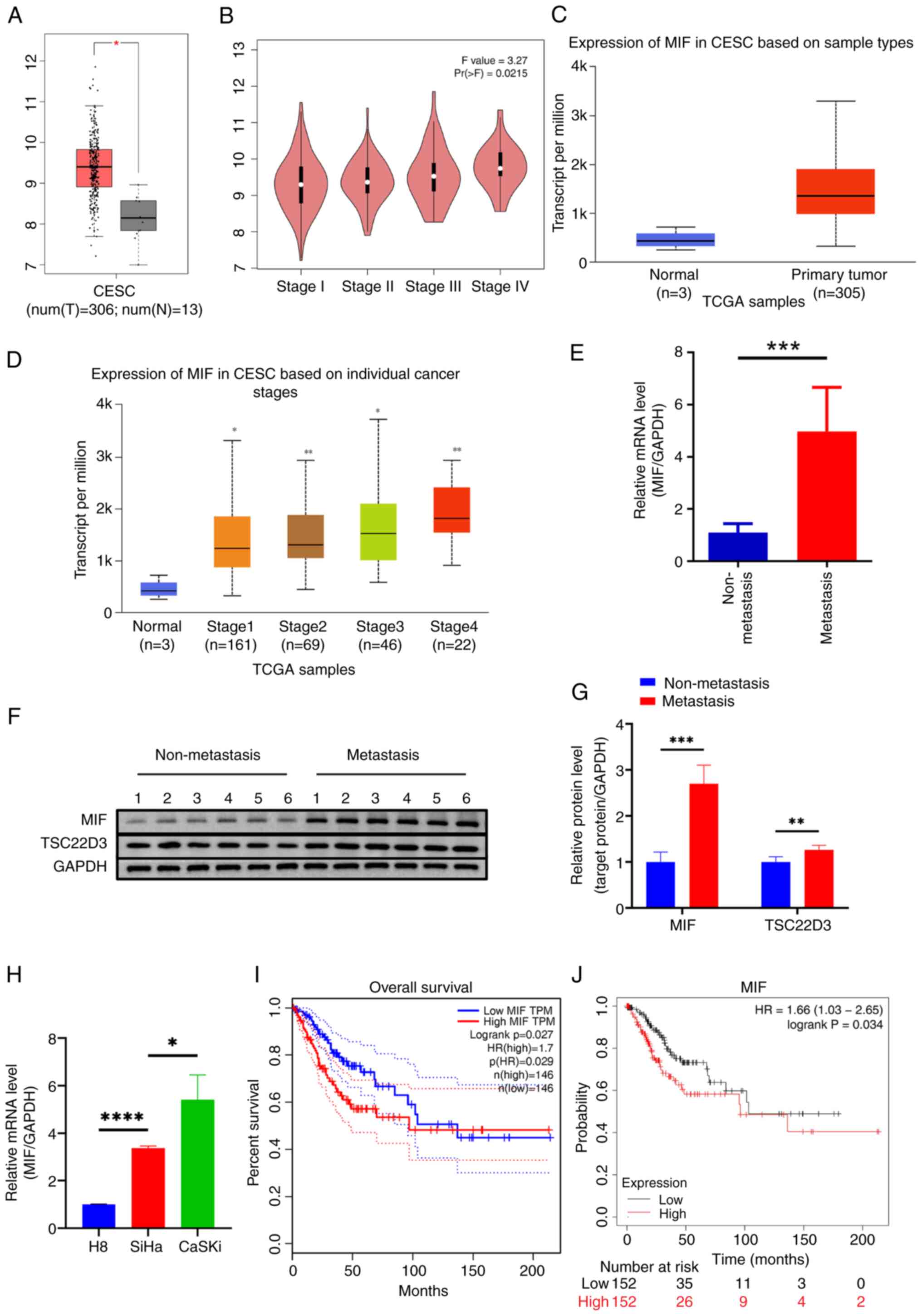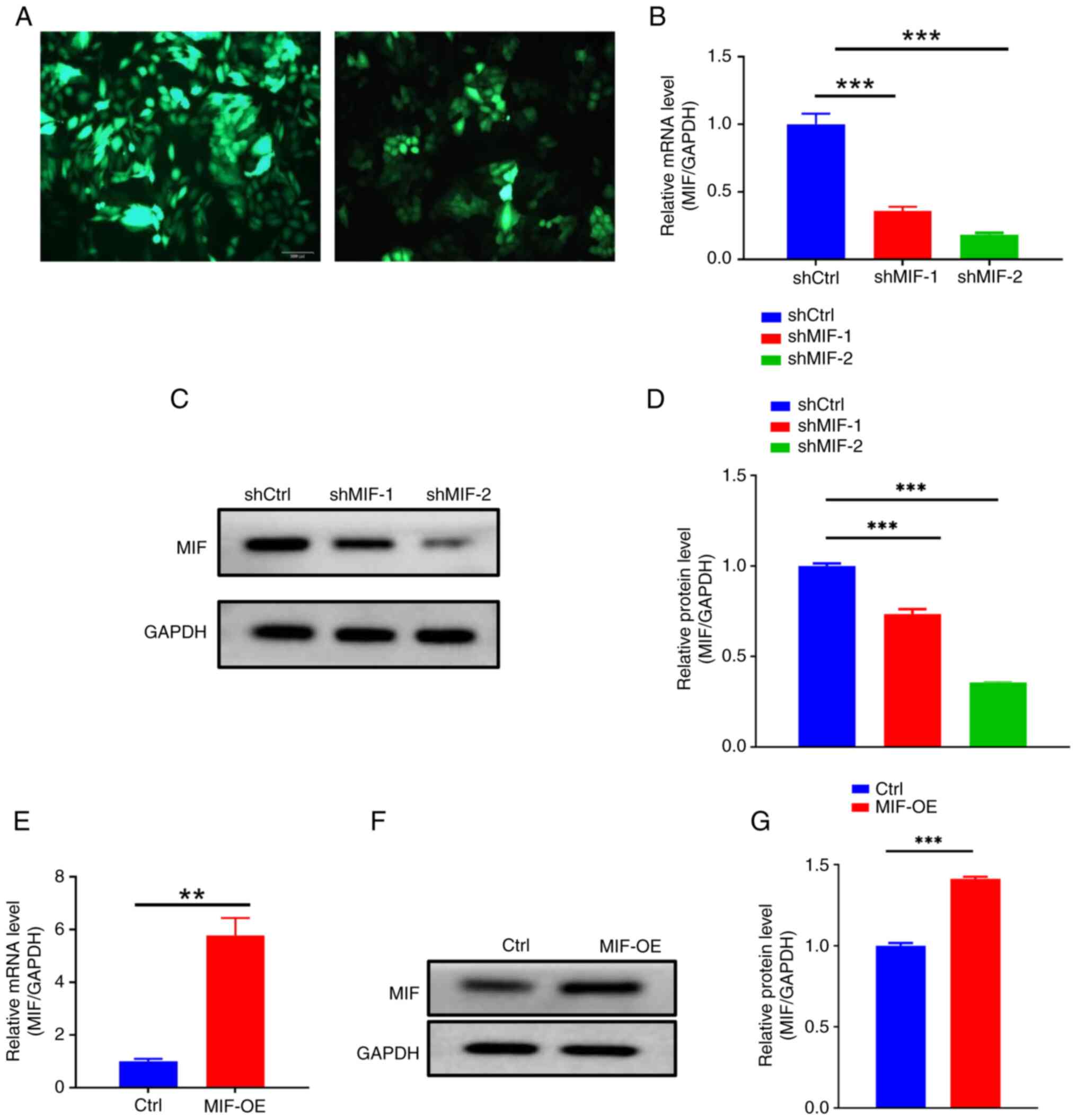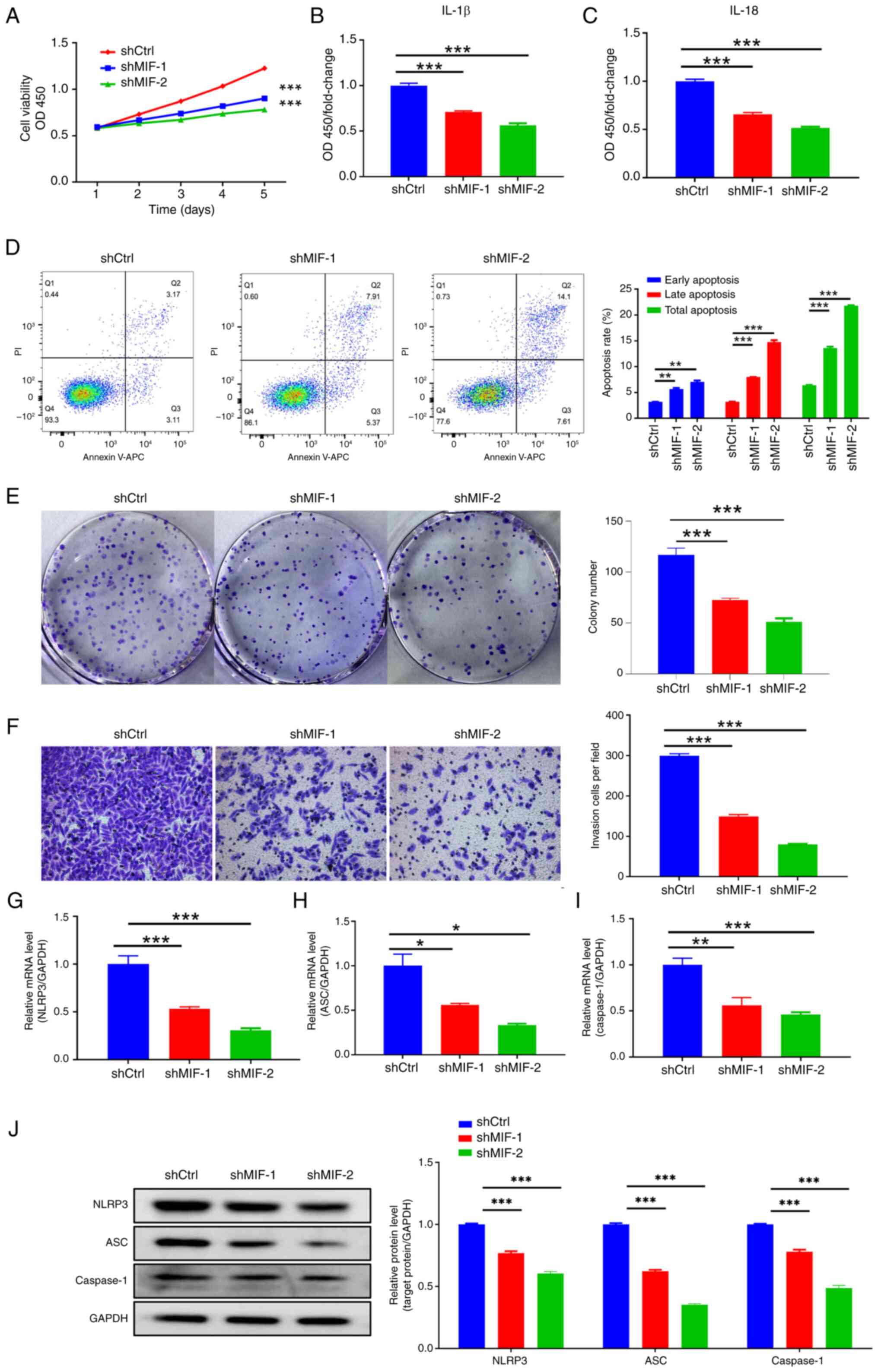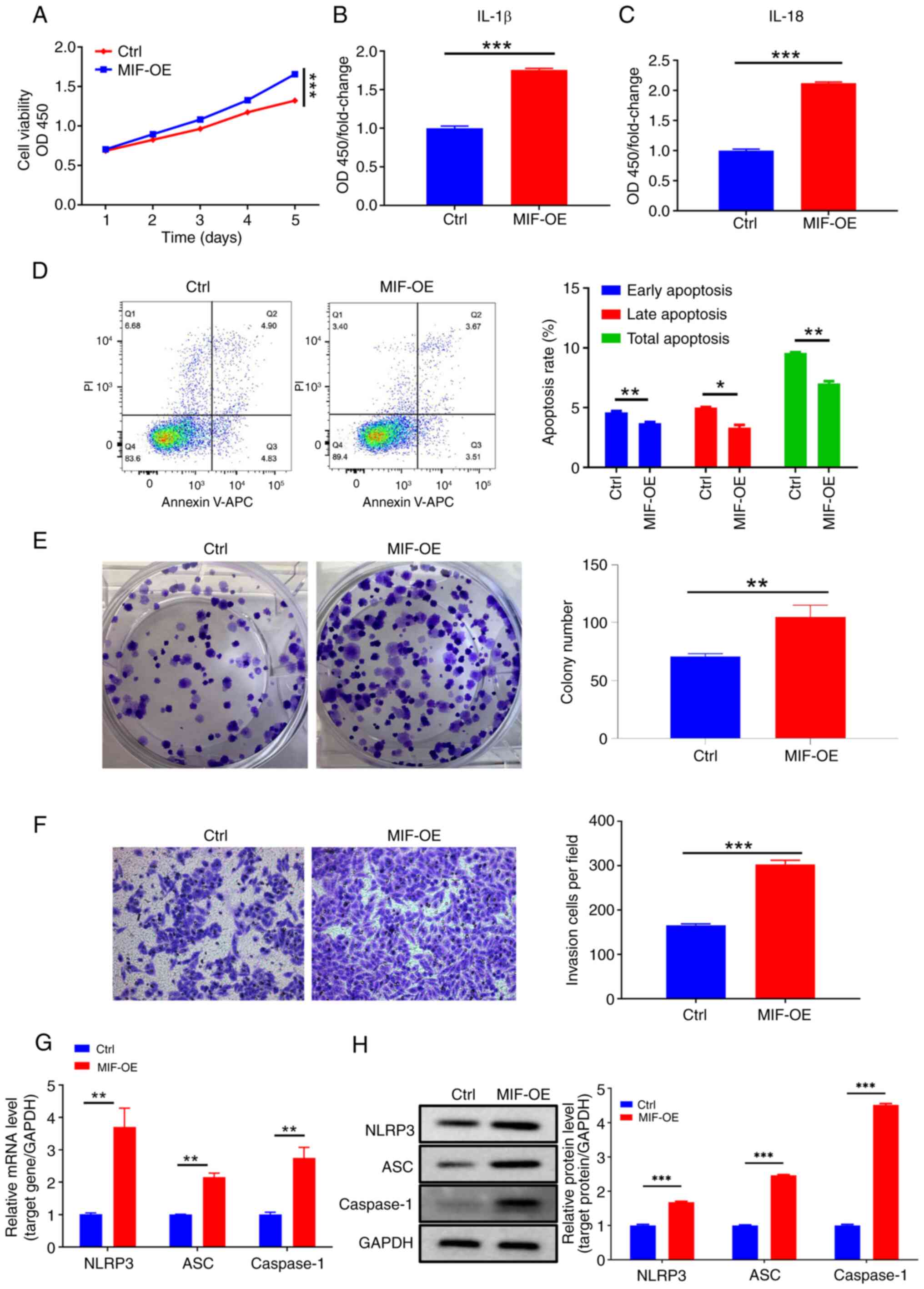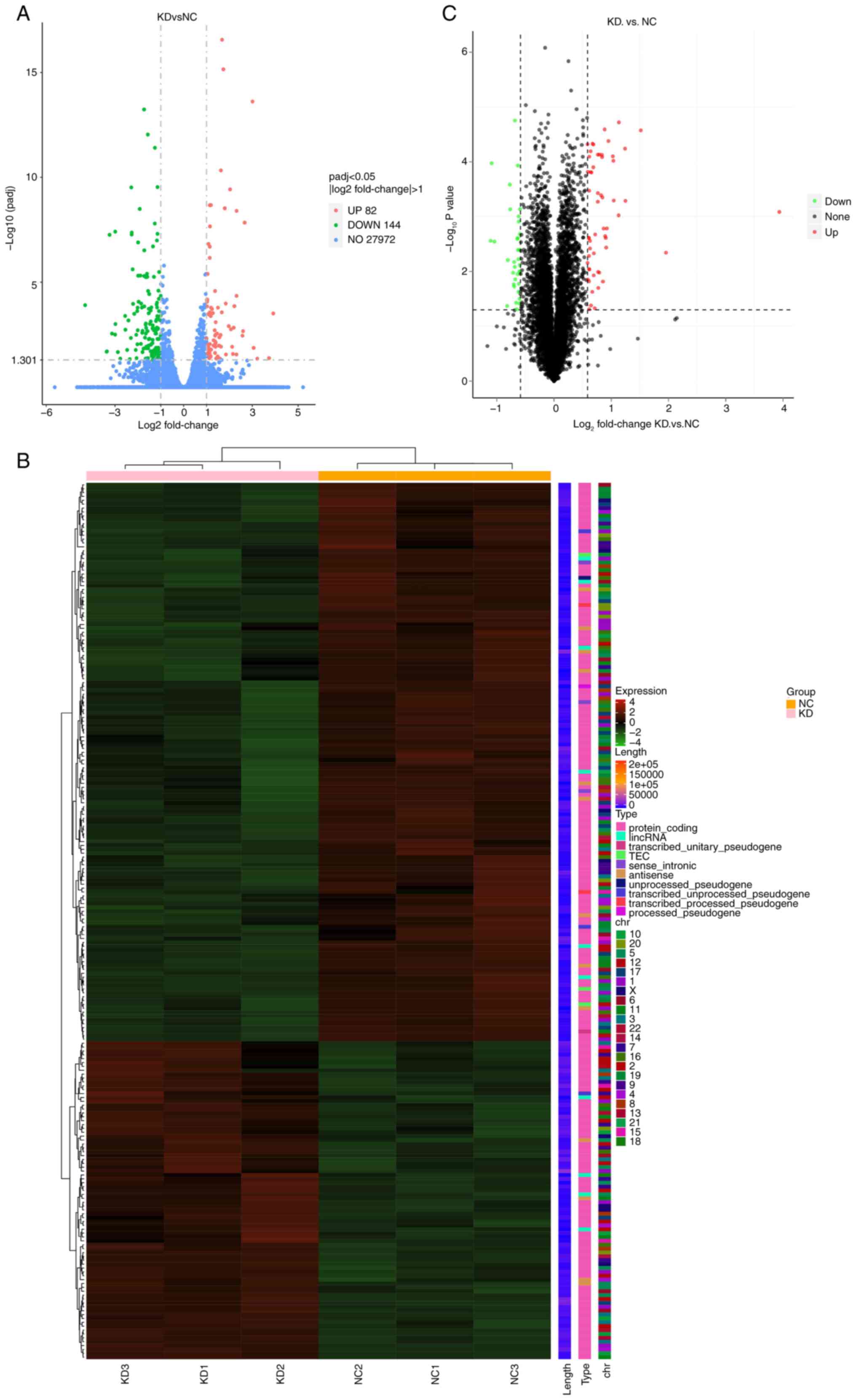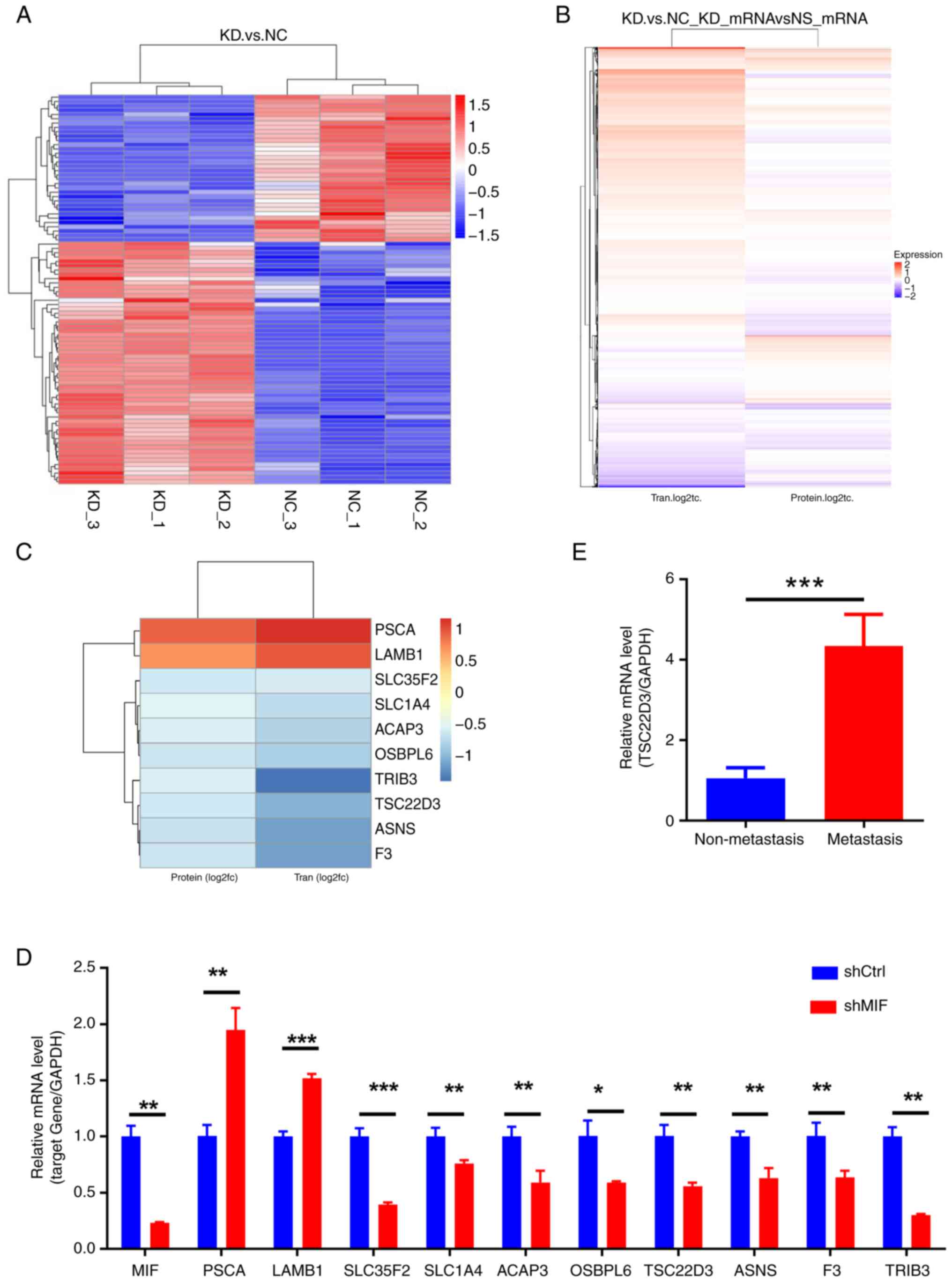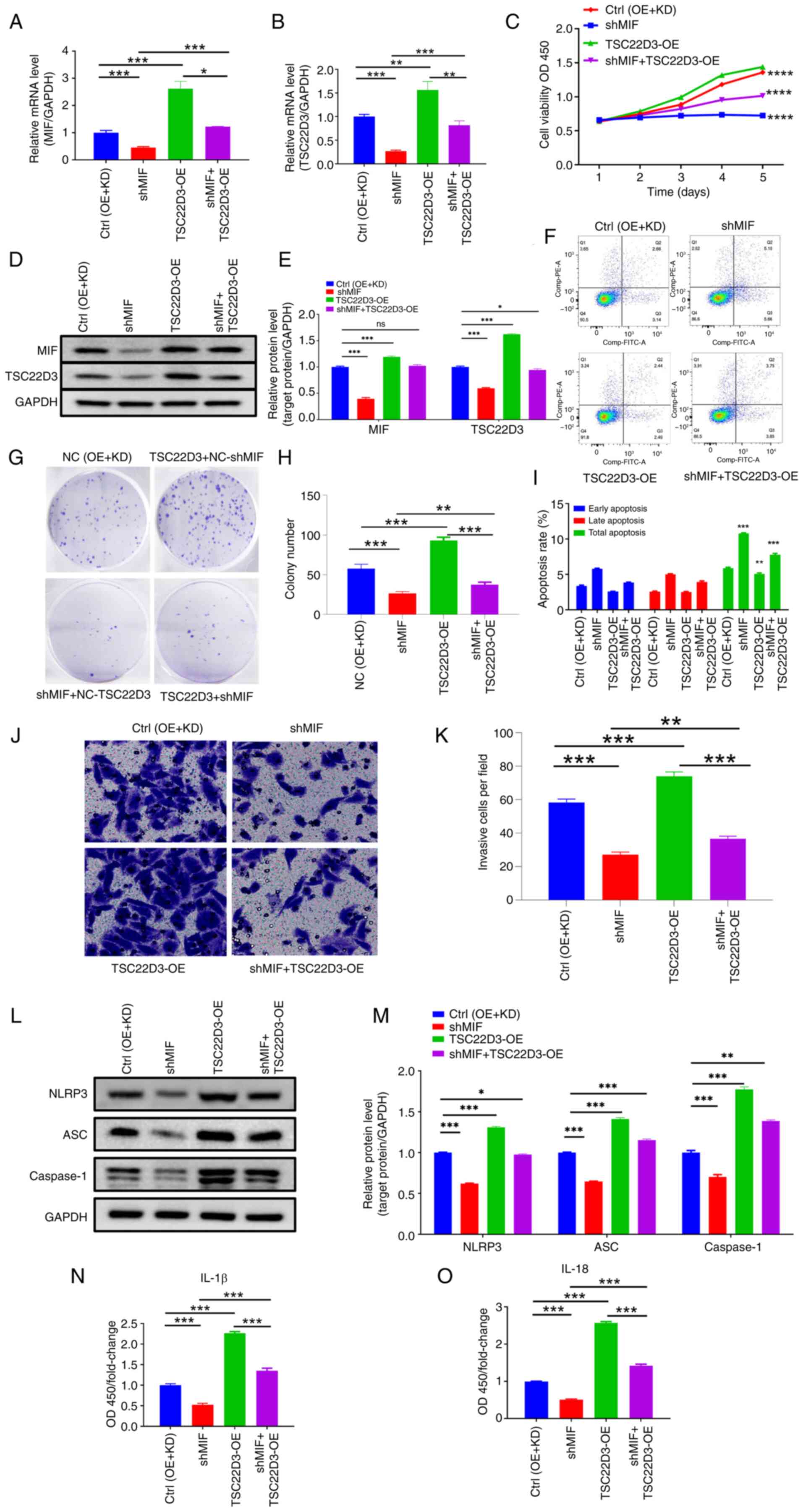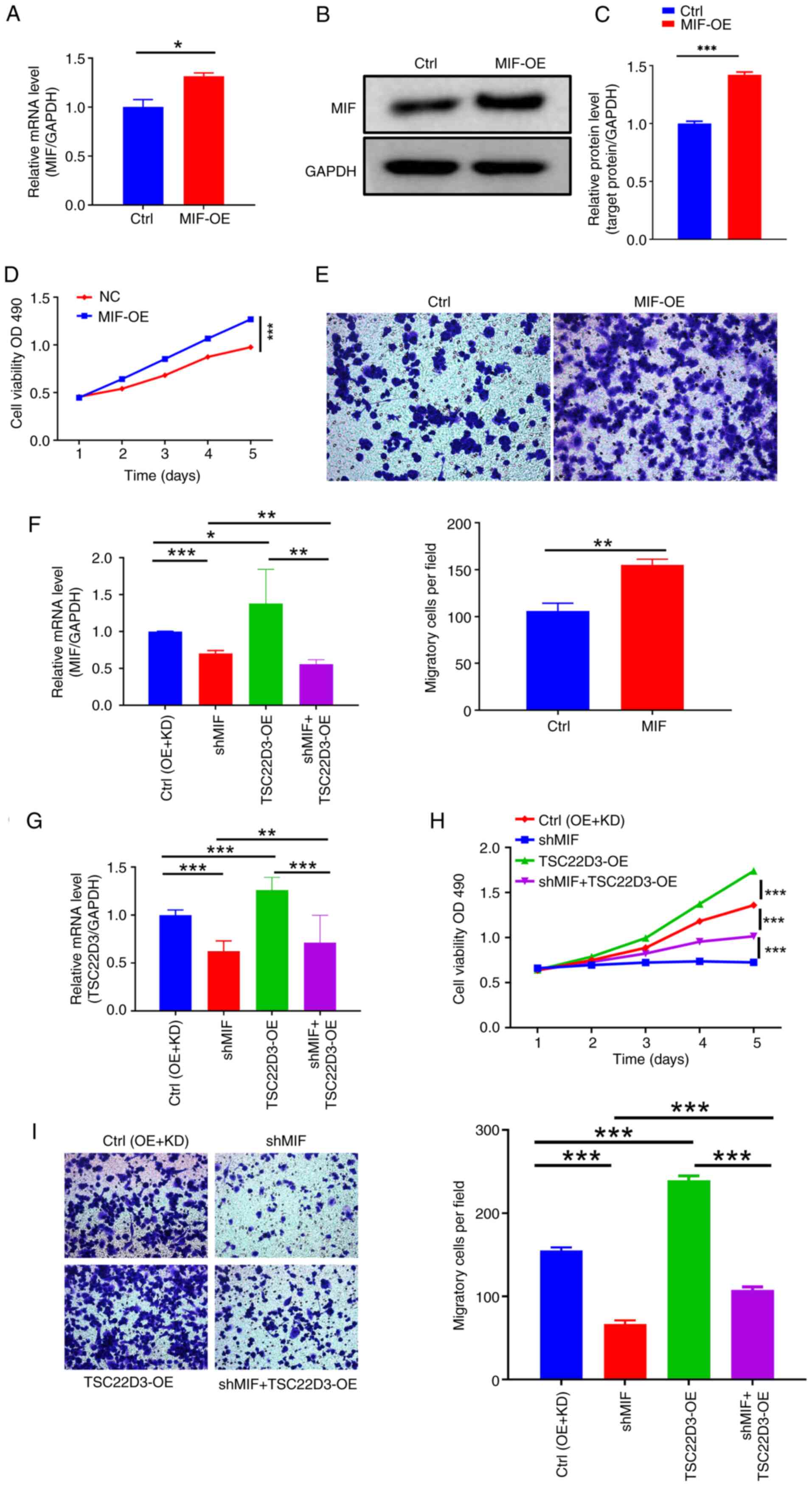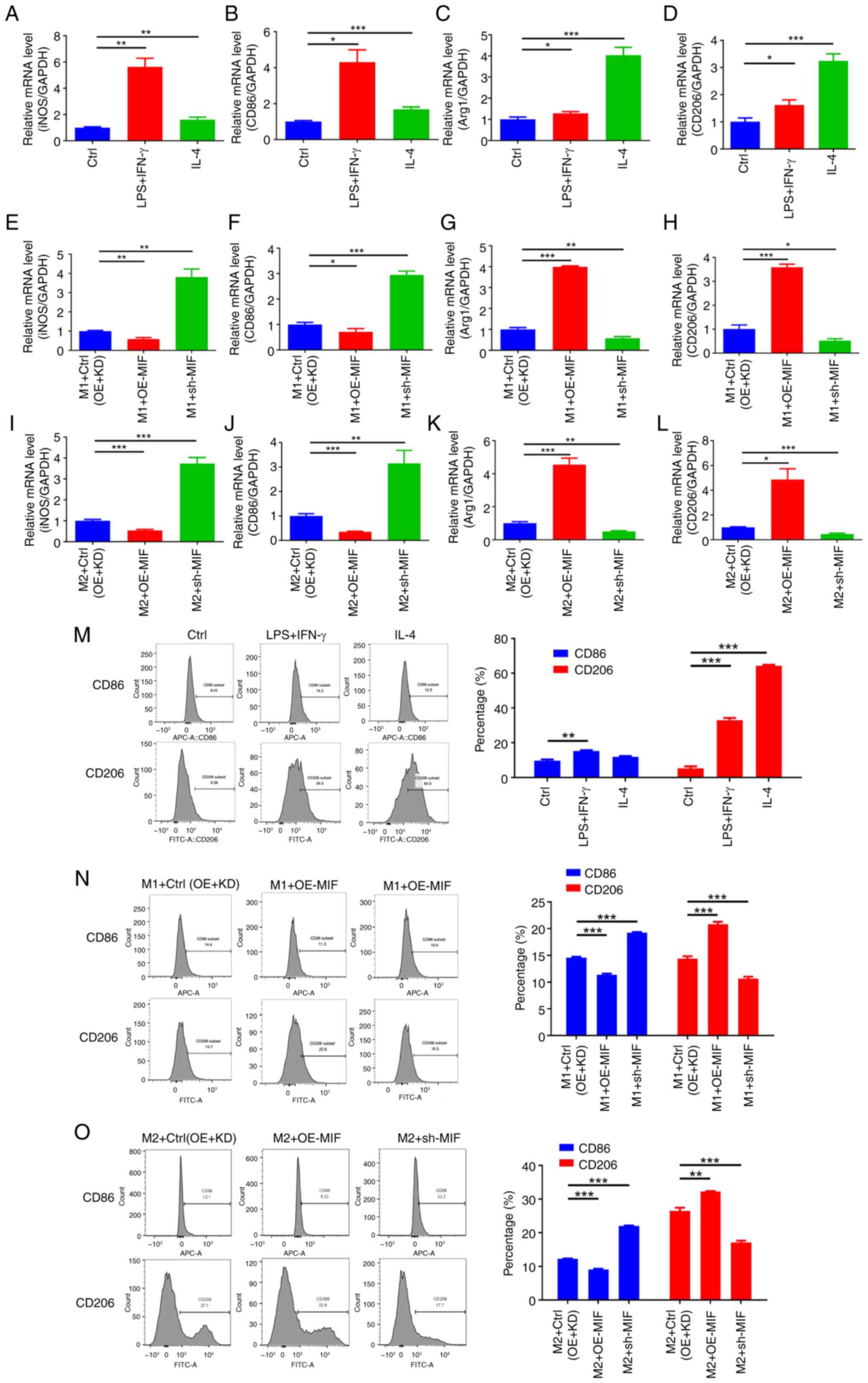|
1
|
Sung H, Ferlay J, Siegel RL, Laversanne M,
Soerjomataram I, Jemal A and Bray F: Global cancer statistics 2020:
GLOBOCAN estimates of incidence and mortality worldwide for 36
cancers in 185 countries. CA A Cancer J Clin. 71:209–249. 2021.
View Article : Google Scholar : PubMed/NCBI
|
|
2
|
Chen W, Zheng R, Baade PD, Zhang S, Zeng
H, Bray F, Jemal A, Yu XQ and He J: Cancer statistics in China,
2015. CA Cancer J Clin. 66:115–132. 2016. View Article : Google Scholar : PubMed/NCBI
|
|
3
|
Siegel RL, Giaquinto AN and Jemal A:
Cancer statistics, 2024. CA Cancer J Clin. 74:12–49. 2024.
View Article : Google Scholar : PubMed/NCBI
|
|
4
|
Xia C, Dong X, Li H, Cao M, Sun D, He S,
Yang F, Yan X, Zhang S, Li N and Chen W: Cancer statistics in China
and United States, 2022: Profiles, trends, and determinants. Chin
Med J (Engl). 135:584–590. 2022. View Article : Google Scholar : PubMed/NCBI
|
|
5
|
Monk BJ, Colombo N, Tewari KS, Dubot C,
Caceres MV, Hasegawa K, Shapira-Frommer R, Salman P, Yañez E, Gümüş
M, et al: First-line pembrolizumab + chemotherapy versus placebo +
chemotherapy for persistent, recurrent, or metastatic cervical
cancer: Final overall survival results of KEYNOTE-826. J Clin
Oncol. 41:5505–5511. 2023. View Article : Google Scholar : PubMed/NCBI
|
|
6
|
Monk BJ, Tewari KS, Dubot C, Caceres MV,
Hasegawa K, Shapira-Frommer R, Salman P, Yañez E, Gümüş M, Hurtado
de Mendoza MO, et al: Health-related quality of life with
pembrolizumab or placebo plus chemotherapy with or without
bevacizumab for persistent, recurrent, or metastatic cervical
cancer (KEYNOTE-826): A randomised, double-blind,
placebo-controlled, phase 3 trial. Lancet Oncol. 24:392–402. 2023.
View Article : Google Scholar : PubMed/NCBI
|
|
7
|
Kang I and Bucala R: The immunobiology of
MIF: Function, genetics and prospects for precision medicine. Nat
Rev Rheumatol. 15:427–437. 2019. View Article : Google Scholar : PubMed/NCBI
|
|
8
|
Zhao H, Wu L, Yan G, Chen Y, Zhou M, Wu Y
and Li Y: Inflammation and tumor progression: Signaling pathways
and targeted intervention. Signal Transduct Target Ther. 6:2632021.
View Article : Google Scholar : PubMed/NCBI
|
|
9
|
Greten FR and Grivennikov SI: Inflammation
and cancer: Triggers, mechanisms, and consequences. Immunity.
51:27–41. 2019. View Article : Google Scholar : PubMed/NCBI
|
|
10
|
Ravichandran KA and Heneka MT:
Inflammasomes in neurological disorders-mechanisms and therapeutic
potential. Nat Rev Neurol. 20:67–83. 2024. View Article : Google Scholar : PubMed/NCBI
|
|
11
|
Fu J, Schroder K and Wu H: Mechanistic
insights from inflammasome structures. Nat Rev Immunol. 24:518–535.
2024. View Article : Google Scholar : PubMed/NCBI
|
|
12
|
Harris J, VanPatten S, Deen NS, Al-Abed Y
and Morand EF: Rediscovering MIF: New tricks for an old cytokine.
Trends Immunol. 40:447–462. 2019. View Article : Google Scholar : PubMed/NCBI
|
|
13
|
Liu Y, Liu Y, Wang Q, Song Y, Chen S,
Cheng B, Zhang Y, Cui Z, Wu Z and Zhu C: MIF inhibitor ISO-1
alleviates severe acute pancreatitis-associated acute kidney injury
by suppressing the NLRP3 inflammasome signaling pathway. Int
Immunopharmacol. 96:1075552021. View Article : Google Scholar : PubMed/NCBI
|
|
14
|
Wu S, Lian J, Tao H, Shang H and Zhang L:
Correlation of macrophage migration inhibitory factor gene
polymorphism with the risk of early-stage cervical cancer and
lymphatic metastasis. Oncol Lett. 2:1261–1267. 2011. View Article : Google Scholar : PubMed/NCBI
|
|
15
|
Tsuchiya S, Yamabe M, Yamaguchi Y,
Kobayashi Y, Konno T and Tada K: Establishment and characterization
of a human acute monocytic leukemia cell line (THP-1). Int J
Cancer. 26:171–176. 1980. View Article : Google Scholar : PubMed/NCBI
|
|
16
|
Livak KJ and Schmittgen TD: Analysis of
relative gene expression data using real-time quantitative PCR and
the 2(−Delta Delta C(T)) method. Methods. 25:402–408. 2001.
View Article : Google Scholar : PubMed/NCBI
|
|
17
|
Yang H, Xia L, Chen J, Zhang S, Martin V,
Li Q, Lin S, Chen J, Calmette J, Lu M, et al:
Stress-glucocorticoid-TSC22D3 axis compromises therapy-induced
antitumor immunity. Nat Med. 25:1428–1441. 2019. View Article : Google Scholar : PubMed/NCBI
|
|
18
|
Nataraja C, Flynn J, Dankers W, Northcott
M, Zhu W, Sherlock R, Bennett TJ, Russ BE, Miceli I, Pervin M, et
al: GILZ regulates type I interferon release and sequesters STAT1.
J Autoimmun. 131:1028582022. View Article : Google Scholar : PubMed/NCBI
|
|
19
|
Flamini S, Sergeev P, Viana de Barros Z,
Mello T, Biagioli M, Paglialunga M, Fiorucci C, Prikazchikova T,
Pagano S, Gagliardi A, et al: Glucocorticoid-induced leucine zipper
regulates liver fibrosis by suppressing CCL2-mediated leukocyte
recruitment. Cell Death Dis. 12:4212021. View Article : Google Scholar : PubMed/NCBI
|
|
20
|
Ma Y, Yang H and Kroemer G: Endogenous and
exogenous glucocorticoids abolish the efficacy of immune-dependent
cancer therapies. Oncoimmunology. 9:16736352020. View Article : Google Scholar : PubMed/NCBI
|
|
21
|
de Visser KE and Joyce JA: The evolving
tumor microenvironment: From cancer initiation to metastatic
outgrowth. Cancer Cell. 41:374–403. 2023. View Article : Google Scholar : PubMed/NCBI
|
|
22
|
Mellman I, Chen DS, Powles T and Turley
SJ: The cancer-immunity cycle: Indication, genotype, and
immunotype. Immunity. 56:2188–2205. 2023. View Article : Google Scholar : PubMed/NCBI
|
|
23
|
Ochando J, Mulder WJM, Madsen JC, Netea MG
and Duivenvoorden R: Trained immunity-basic concepts and
contributions to immunopathology. Nat Rev Nephrol. 19:23–37. 2023.
View Article : Google Scholar : PubMed/NCBI
|
|
24
|
Kloosterman DJ and Akkari L: Macrophages
at the interface of the co-evolving cancer ecosystem. Cell.
186:1627–1651. 2023. View Article : Google Scholar : PubMed/NCBI
|
|
25
|
Pittet MJ, Michielin O and Migliorini D:
Clinical relevance of tumour-associated macrophages. Nat Rev Clin
Oncol. 19:402–421. 2022. View Article : Google Scholar : PubMed/NCBI
|
|
26
|
Locati M, Curtale G and Mantovani A:
Diversity, mechanisms, and significance of macrophage plasticity.
Annu Rev Pathol. 15:123–147. 2020. View Article : Google Scholar : PubMed/NCBI
|
|
27
|
Wang H, Yung MMH, Ngan HYS, Chan KKL and
Chan DW: The impact of the tumor microenvironment on macrophage
polarization in cancer metastatic progression. Int J Mol Sci.
22:65602021. View Article : Google Scholar : PubMed/NCBI
|
|
28
|
Anderson NR, Minutolo NG, Gill S and
Klichinsky M: Macrophage-based approaches for cancer immunotherapy.
Cancer Res. 81:1201–1208. 2021. View Article : Google Scholar : PubMed/NCBI
|
|
29
|
Bian Z, Gong Y, Huang T, Lee CZW, Bian L,
Bai Z, Shi H, Zeng Y, Liu C, He J, et al: Deciphering human
macrophage development at single-cell resolution. Nature.
582:571–576. 2020. View Article : Google Scholar : PubMed/NCBI
|
|
30
|
Woolbright BL, Rajendran G, Abbott E,
Martin A, Amalraj S, Dennis K, Li X, Warrick J and Taylor JA III:
Role of MIF1/MIF2/CD74 interactions in bladder cancer. J Pathol.
259:46–55. 2022. View Article : Google Scholar : PubMed/NCBI
|
|
31
|
Huang G, Ma L, Shen L, Lei Y, Guo L, Deng
Y and Ding Y: MIF/SCL3A2 depletion inhibits the proliferation and
metastasis of colorectal cancer cells via the AKT/GSK-3β pathway
and cell iron death. J Cell Mol Med. 26:3410–3422. 2022. View Article : Google Scholar : PubMed/NCBI
|
|
32
|
Jia X, Xi J, Tian B, Zhang Y, Wang Z, Wang
F, Li Z, Long J, Wang J, Fan GH and Li Q: The tautomerase activity
of tumor exosomal MIF promotes pancreatic cancer progression by
modulating MDSC differentiation. Cancer Immunol Res. 12:72–90.
2024. View Article : Google Scholar : PubMed/NCBI
|
|
33
|
Penticuff JC, Woolbright BL, Sielecki TM,
Weir SJ and Taylor JA: MIF family proteins in genitourinary cancer:
Tumorigenic roles and therapeutic potential. Nat Rev Urol.
16:318–328. 2019. View Article : Google Scholar : PubMed/NCBI
|
|
34
|
Wang Q, Wei Y and Zhang J: Combined
knockdown of D-dopachrome tautomerase and migration inhibitory
factor inhibits the proliferation, migration, and invasion in human
cervical cancer. Int J Gynecol Cancer. 27:634–642. 2017. View Article : Google Scholar : PubMed/NCBI
|
|
35
|
Cao X and Xu J: Insights into inflammasome
and its research advances in cancer. Tumori. 105:456–464. 2019.
View Article : Google Scholar : PubMed/NCBI
|
|
36
|
Barnett KC, Li S, Liang K and Ting JPY: A
360° view of the inflammasome: Mechanisms of activation, cell
death, and diseases. Cell. 186:2288–2312. 2023. View Article : Google Scholar : PubMed/NCBI
|
|
37
|
Ershaid N, Sharon Y, Doron H, Raz Y, Shani
O, Cohen N, Monteran L, Leider-Trejo L, Ben-Shmuel A, Yassin M, et
al: NLRP3 inflammasome in fibroblasts links tissue damage with
inflammation in breast cancer progression and metastasis. Nat
Commun. 10:43752019. View Article : Google Scholar : PubMed/NCBI
|
|
38
|
Kopalli SR, Kang TB, Lee KH and Koppula S:
NLRP3 Inflammasome activation inhibitors in inflammation-associated
cancer immunotherapy: An update on the recent patents. Recent Pat
Anticancer Drug Discov. 13:106–117. 2018. View Article : Google Scholar : PubMed/NCBI
|
|
39
|
Wang L, Wang C, Tao Z, Zhu W, Su Y and
Choi WS: Tumor-associated macrophages facilitate oral squamous cell
carcinomas migration and invasion by MIF/NLRP3/IL-1β circuit: A
crosstalk interrupted by melatonin. Biochim Biophys Acta Mol Basis
Dis. 1869:1666952023. View Article : Google Scholar : PubMed/NCBI
|
|
40
|
Basak U, Sarkar T, Mukherjee S,
Chakraborty S, Dutta A, Dutta S, Nayak D, Kaushik S, Das T and Sa
G: Tumor-associated macrophages: An effective player of the tumor
microenvironment. Front Immunol. 14:12952572023. View Article : Google Scholar : PubMed/NCBI
|
|
41
|
Figueiredo CR, Azevedo RA, Mousdell S,
Resende-Lara PT, Ireland L, Santos A, Girola N, Cunha RLOR, Schmid
MC, Polonelli L, et al: Blockade of MIF-CD74 signalling on
macrophages and dendritic cells restores the antitumour immune
response against metastatic melanoma. Front Immunol. 9:11322018.
View Article : Google Scholar : PubMed/NCBI
|
|
42
|
Perez-Riverol Y, Bai J, Bandla C,
García-Seisdedos D, Hewapathirana S, Kamatchinathan S, Kundu DJ,
Prakash A, Frericks-Zipper A, Eisenacher M, et al: The PRIDE
database resources in 2022: A hub for mass spectrometry-based
proteomics evidences. Nucleic Acids Res. 50:D543–D552. 2022.
View Article : Google Scholar : PubMed/NCBI
|















